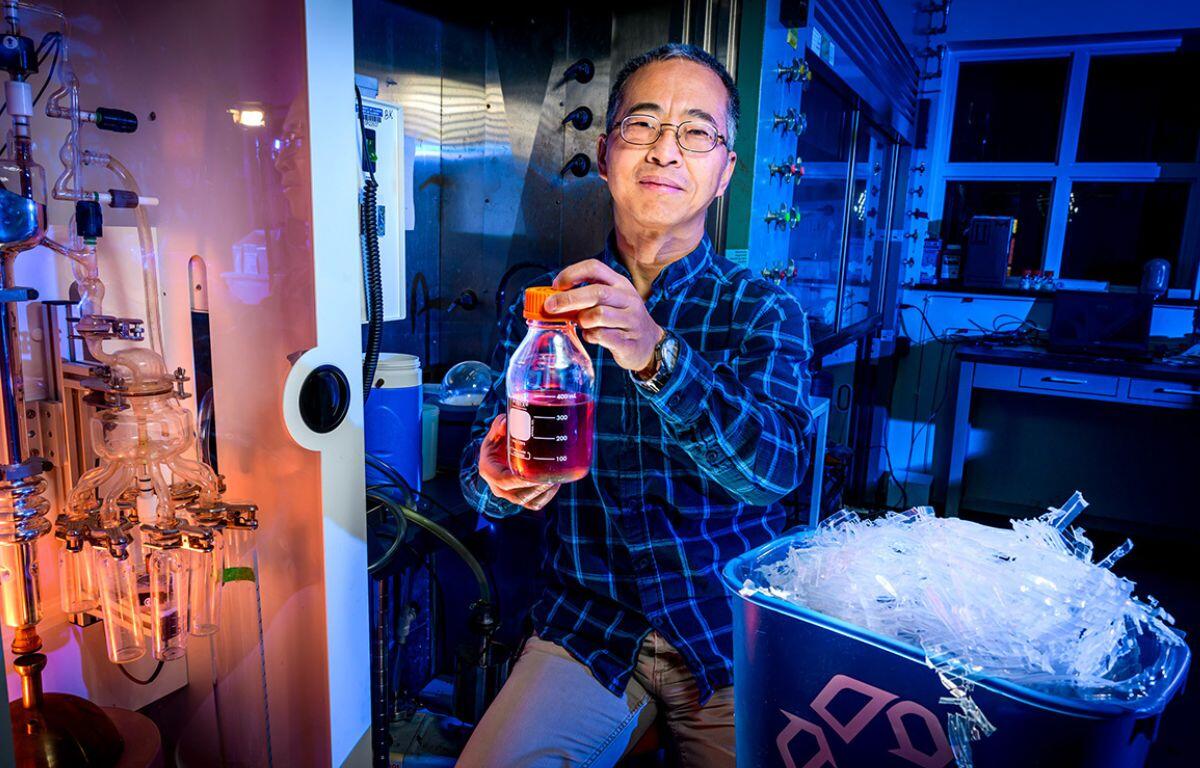CHAMPAIGN, IL (Chambana Today) – A new study from a University of Illinois researcher has found a cost-effective way to produce ethylbenzene, a crucial additive for sustainable aviation fuels, from waste polystyrene, a plastic commonly disposed of in landfills. The research, led by Hong Lu at the Illinois Sustainable Technology Center, addresses a challenge in the aviation industry’s shift away from fossil fuels by providing a sustainable source of aromatic hydrocarbons, which are essential for keeping fuel systems operational.
Currently, sustainable aviation fuels (SAFs) lack sufficient aromatic hydrocarbons, limiting their use in commercial aircraft. By converting polystyrene into ethylbenzene through thermal pyrolysis and hydrogenation, researchers created a product that performs almost as well as fossil-derived ethylbenzene. The process also reduces carbon emissions by 50% to 60% compared to traditional methods and is cheaper to produce.
This breakthrough aligns with the U.S. government’s goal of ramping up domestic SAF production to 3 billion gallons annually by 2030, with plans to reach 35 billion gallons per year by 2050. The study, published in ACS Sustainable Chemistry and Engineering, was supported by the U.S. Department of Energy.


